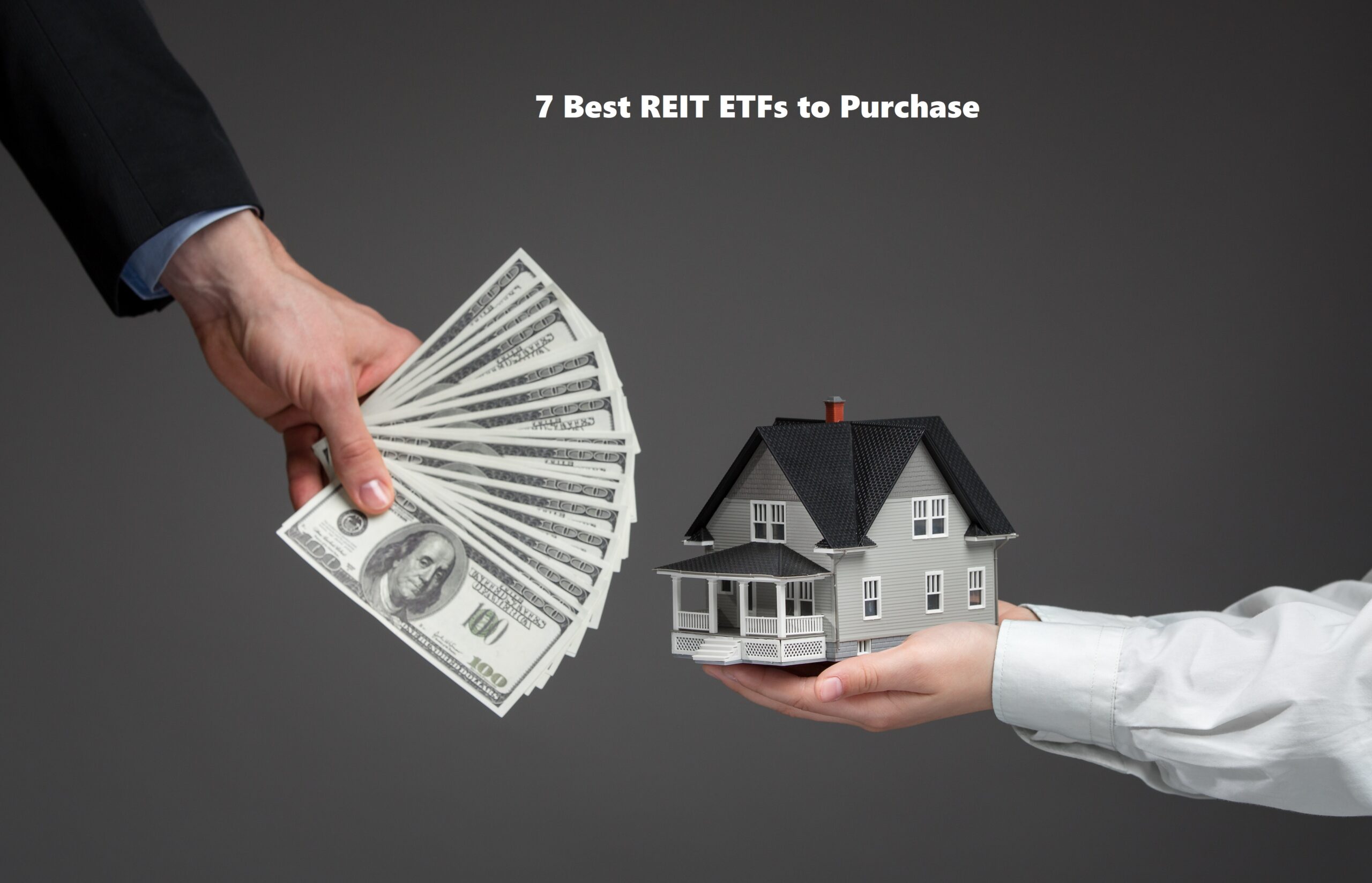
How to 7 Best REIT ETFs to Purchase
Before buying Best REIT ETFs , it is important to consider your financial goals and objectives. In addition to dividend history and yield, you should consider expense ratios and fund performance. You can learn more about these factors by reviewing the fund prospectuses. These documents contain detailed information about REIT ETFs and their assets under management. They also include information about the funds’ top holdings.
iShares Residential Real Estate ETF (REZ)
The iShares Residential Real Estate ETF is an ETF that provides exposure to the residential real estate sector. The fund tracks the performance of US residential, health care, and self-storage REITs. It is designed to closely track the performance of the FTSE NAREIT All Residential Capped Index. The index comprises both large and small-cap companies. Real estate stocks have historically offered attractive returns.
The fund is concentrated in S&P 500 REITs, and its top 10 holdings account for 61% of its total weight. This makes it a good choice for investors who want to focus on the most prominent real estate companies. Another benefit of this fund is its low expense ratio, which is only 0.1%.
The iShares Residential Real Estate ETF was launched on May 1, 2007 by BlackRock, Inc. The fund is managed by BlackRock Fund Advisors. It invests in growth stocks of companies with diversified market capitalization in the residential real estate sector. The fund aims to replicate the performance of the FTSE NAREIT Residential Index.
Real estate investment trusts (REITs) are a convenient way to invest in real estate. They pool investor capital to purchase a variety of properties. This allows them to diversify their investment portfolio and limit idiosy risks associated with owning property.
iShares S&P TSX Capped REIT Index ETF (XRE)
XRE is a Canadian real estate exchange-traded fund (ETF) that tracks the performance of the REIT industry. The ETF is a market cap weighted index of Canadian companies that own real estate properties. The XRE ETF has a capped constituent weight of 25%, which limits its exposure to any one REIT. It holds REITs that are primarily in the office, retail, and industrial sectors.
Investing in REITs is a great way to diversify your portfolio. This fund invests in a portfolio of Canadian REITs and invests a maximum of 7.5% of its portfolio in one company. The REIT ETF’s manager also tactically hedges against rising interest rates and currency risk in its foreign positions.
XRE is the oldest REIT ETF in Canada, and has over $1.2 billion in net assets. It tracks the S&P TSX Capped REI Index and only holds REITs that meet certain criteria. In addition, it has a cap on its exposure to any single REIT, and all investments must be Canadian. This ETF is the only Canadian REIT ETF. It costs slightly more than the other REIT ETFs, mainly because of foreign withholding tax. It is best held in a taxable account to take advantage of tax credits
iShares S&P KBW Premium Yield Equity REIT ETF (VNQ)
The KBW bank index Premium Yield Equity REIT Index tracks the performance of domestic equity REITs with competitive dividend yields. The fund’s main investment criteria are dividend yield and company size. It invests primarily in mid and small-cap REITs. This combination provides diversification benefits and a high dividend yield.
The Vanguard product is known for its low management costs and is one of the most popular REIT ETFs for passive investors. The fund charges just 0.10% for management and is fully transparent about its underlying investments. In addition, it features a customizable workspace, trading simulations, and profiles. It also has a ThinkBack tool, which lets you backtest your trading strategies. TD Ameritrade, a leading mobile broker, also offers a wide variety of REITs. Individual properties can be difficult to manage and make consistent profits.
During the 2007-2008 recession, VNQ received a beating, but since then, it has steadily delivered solid returns. The fund invests in retail, office, and residential REITs. Moreover, it also features diversification across equity sectors, including office REITs, real estate services, and real estate operating companies.
REIT ETFs with high research costs tend to be more expensive than other REIT ETFs. But their expense ratios are lower than those of passive REITs. Active management also allows the fund to invest in REIT categories with the most favorable returns, such as data centers and infrastructure.
Vanguard Real Estate ETF (VRE)
Vanguard’s VRE Exchange Traded Fund (ETF) provides exposure to Canadian Real Estate Equities. It tracks the FTSE Canada All Cap Real Estate Capped 25% Total Return Index – CAD. It has a low expense ratio and generates a return by investing in the securities that comprise the index. In addition, it distributes dividends.
Vanguard was founded in 1975 and has become one of the world’s largest equity and fixed income management firms. The company is led by Gregory Davis, who oversees the Equity Index Group, Quantitative Equity Group, and Fixed Income Group. The Equity Index Group manages indexed equity portfolios for domestic and international markets. The fund employs sophisticated portfolio construction methodologies.
The Vanguard Real Estate ETF (VNQ) , which seeks to track the performance of the MSCI US Investable Market Real Estate 25/50 index, invests in stocks of commercial real estate investment trusts (REITs). It uses a full replication process to invest in stocks with the same capitalization weighting as the index. For this reason, it must hold enough shares to be liquid. Vanguard’s Equity Index Group uses proprietary software to implement trading decisions and keep a close correlation with the index’s characteristics. The ETF charges very low management fees and is extremely efficient, which allows it to maintain tight tracking net of expenses.
Morningstar information is not intended to be personalized investment advice. Morningstar data is at least 10 minutes delayed. Morningstar is not responsible for any errors or omissions. Also, past performance is not indicative of future results. You should not invest in a specific ETF based on its past performance.
SPDR Real Estate Fund (SCHH)
If you’re looking to invest in real estate, you may want to consider purchasing SPDR Real Estate Fund (SCHH). The SCHH is the second largest real estate ETF in terms of total assets, and it has a low expense ratio. It also yields 3.3% annually and has a manager with more than five years of experience. This fund invests in real estate management and development companies, but doesn’t include mortgage REITs.
SCHH’s index is the Dow Jones Equity All REIT Capped Index, which aims to capture the performance of the REIT sector. It is an index that encompasses all sectors of the real estate market, except for hybrid and mortgage REITs. The SPDR Real Estate Fund’s dividend yield is double the dividend yield of its benchmark.
If you’re interested in real estate, you may want to consider investing in the vanguard Real Estate Select Sector SPDR Fund (SCHH). This fund has $5.4 billion in net assets and invests in stocks of real estate companies. This index doesn’t include mortgage REITs, but it does invest in other real estate sector companies. The fund has a low expense ratio of 0.1%, and it pays out dividends quarterly. The SPDR Real Estate Fund (SCHH) is domiciled in the United States.
Real estate ETFs have fallen 9.3% year-to-date. The economy is slowing, which is negatively impacting real estate demand and occupancy rates. In 2020, investors will be looking for growth and cyclical sectors, and real estate is no exception. But in the meantime, the pandemic has shut down the gaming and business travel industries, which hit retail REITs hard.









